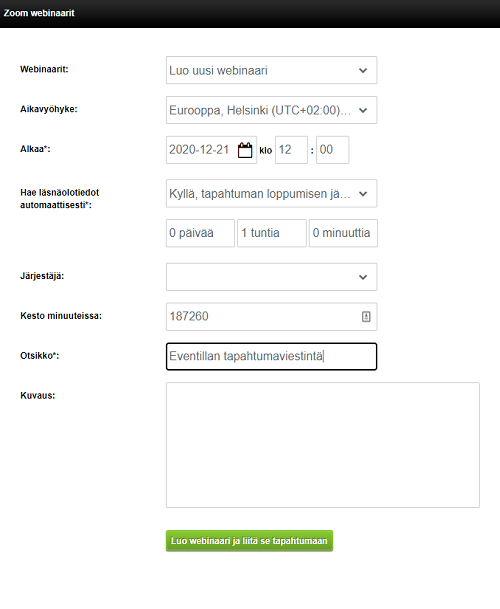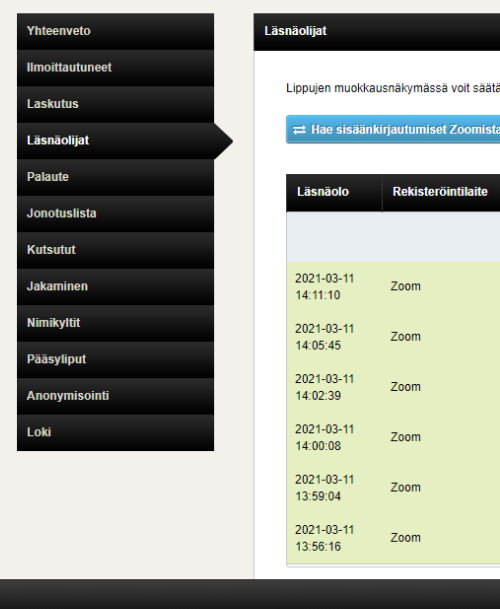
The future of the event industry has been under a lot of discussion during covid-19 pandemic. There is one thing we know for sure: online events are here to stay, at least to accompany the live ones.
Before the pandemic, events were always live meetings and gatherings. In those live events people were mingling and exchanging thoughts on different matters. This year changed everything, and there’s no going back, at least not in a while.
At the moment events happen in Teams, Zoom, Meet, GoToWebinar… and the list goes on. It is clear that they have been moved online.
Event industry of the future –
hybrid events
The event industry won’t stay online forever. We miss gatherings, networking, touch, afterworks, galas, side events, delicious event menus… However, some of the participants won’t come to events anymore – at least not before a proper vaccination is offered. Some might even stay home for good.
That’s why it is more than important to assure that events can be participated also online. We should face the fact that in the future, events will be held both live and online, simultaneously. These are called hybrid events.

Hybrid events gather a whole new
scale of participants
Hybrid events can create new challenges for event organizers, customer service and data management. Despite the challenges, this new model should be considered as an opportunity. Hybrid events can for example gather a lot more participants than earlier. Location, transportation or lack of space doesn’t have to limit the participation anymore.
Another opportunity is that the events can have longer life cycles: presentations and speeches are no longer tied to a certain schedule – a busy participant can also take part in the event next day at home. Networking can start earlier online, for example via a networking platform.
Arranging hybrid events
As I mentioned earlier, hybrid events might cause extra arrangements compared to the regular ones. The organizers should take care of invitations, registrations, communication – all this for both live and online events. That’s why the event management should be carefully planned. The event should function equally well live and online.
When it comes to online participation, the event production methods and technology become crucial. It’s no longer enough to have a web camera in the corner of the event room. The organizer should have a well-functioning camera and sound system, good layout and smooth communication. It also won’t be enough to have a traditional.webinar speech going on. The organizers should allow interaction with and among the participants, for example via matchmaking platforms or questions and answers section. I wonder, how will these be organized in hybrid events? Can the live participants contact online-ones via a Skype room?

It can be said that hybrid events bring new kinds of challenges, but organizing them can be made easy by utilizing an event management tool like Eventilla.
This is how Evenitilla does it:
- When registering, the participants can choose whether they want to attend live or online.
- The communication for online and offline participants can be differentiated, so that only the online participants receive the webinar link, and so on.
- The event participants are collected to one list, no matter if they participate online or live.
- Participants are saved as contacts and leads, transferred directly to a CRM system. With the help of Eventilla integrations, this is easy.
I dare to argue that the future of events is hybrid – both live and online.
At Eventilla we continue doing our best to ensure your event’s success – live, online or as hybrid.
About the author
Kirjoittajasta





















